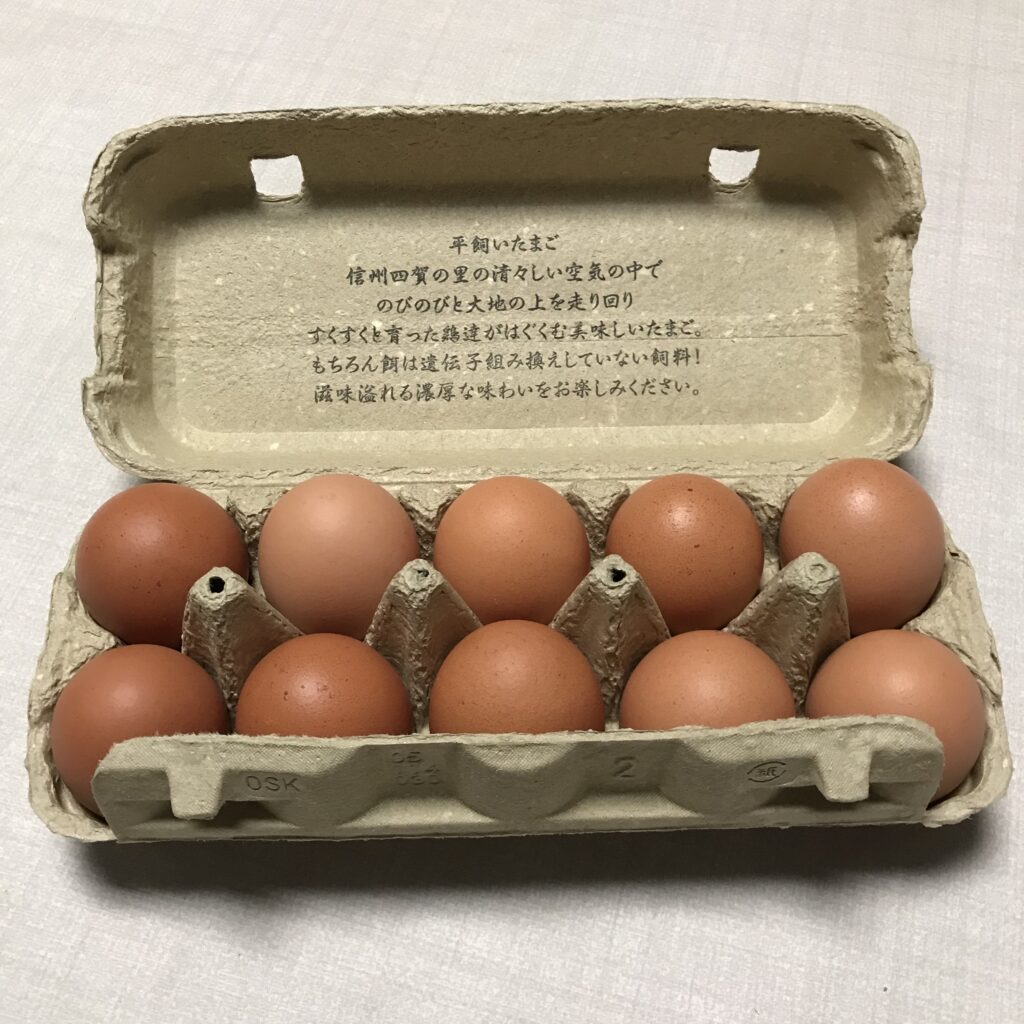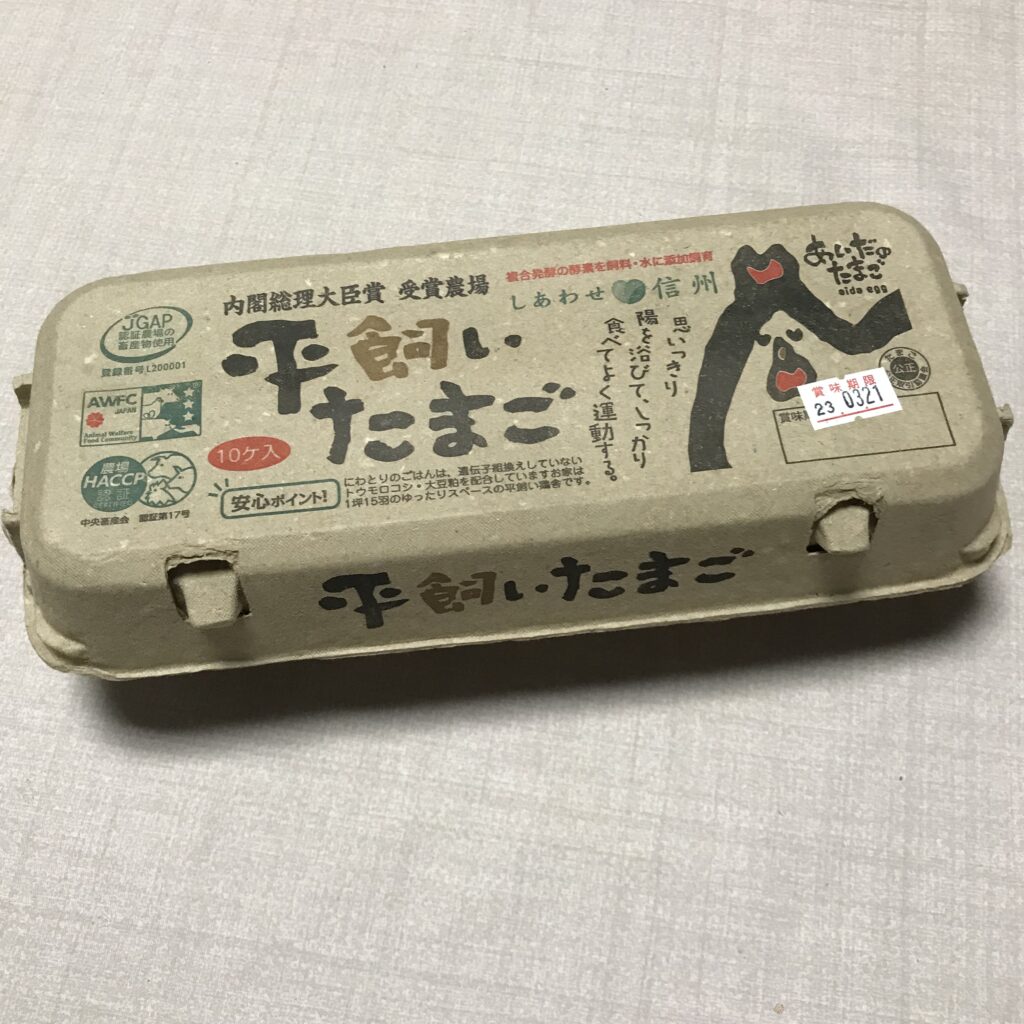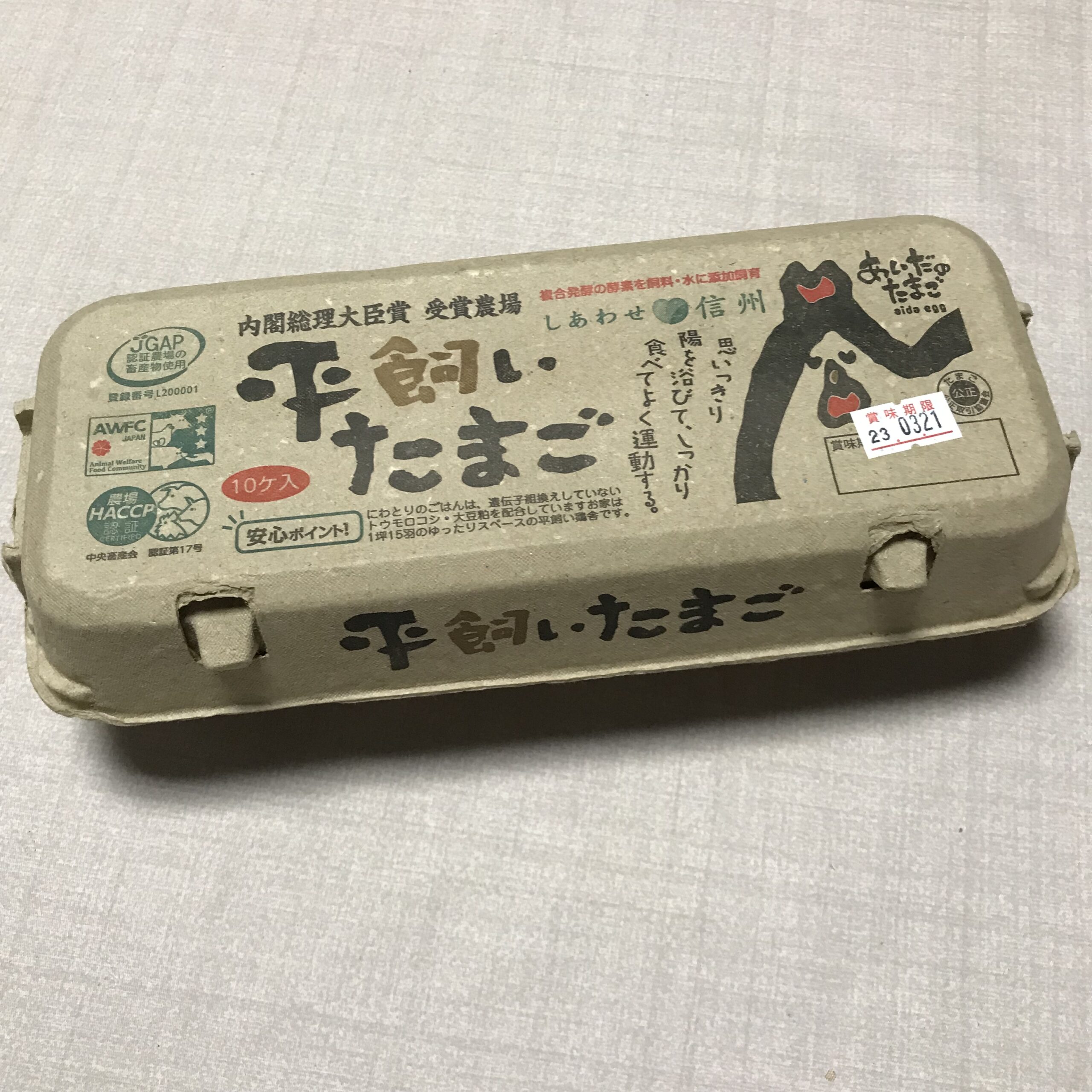私は、大寒の時期(1月20日頃から2月2日頃まで)は、卵を必ず買うようにしています。
大寒の初日に産まれた卵を大寒卵(だいかんたまご)といい、栄養価が高いというからです。
大寒は、二十四節気における冬の最後の節気で、一年で最も寒い時期。
冬に鶏が餌をたくさん食べて栄養を蓄え、卵を産まずにじっとしているため、この頃に産まれた卵には栄養が凝縮されていると考えられています。
卵にも旬があるということですね。

ちなみ私は年中「平飼い」一択です。
ケージにギューギューに詰められた鶏の映像を見てから、普通の卵は食べられなくなりました。
このように劣悪な環境にいる鶏たちは病気にもかかりやすいみたいです。
ある知り合いが「最近、卵が売られていない。鶏のウイルスが蔓延しているらしい」と言い、話についていけなかったことがあります。
「え!?そうなの?私が普段、買っている平飼い卵は普通に売ってたよ」と言ったら、シーン。もしかして平飼い卵って、それほど敷居の高い代物扱いなのかなぁ?と1人でモヤモヤしてしまいました。
わざわざ「平飼い卵」と言ったのは決してマウントを取るため(ちっちゃw)ではなく、「平飼い卵」という概念が一般化してほしいという切実な想いからでした。
平飼い卵は一個50円以上するので、普通の卵より高価だと感じるかもしれない。
私は、味玉や温泉卵に50~100円払う方が「高い」と思ってしまうので、わからなくもないです。
だって飲食店の味玉や温泉卵は、原価率を考えて安いケージの卵を使っているのに、平飼い卵と同じかそれ以上の値段を取る。それを抵抗なく払えるなら、高品質の生たまごだって買えるはず。と思うんです。
私は卵を毎日は食べないし、食べるとしても一日一個程度。その知り合いは「卵は1日何個でも食べていいんですよ!卵だ〜いすき」と言いながら毎日3個、ケージ飼の卵を食べていました。
あなたみたいに何も考えず、安い卵を大量消費しているから、卵も鶏も病気にかかるのでは?って内心思いました。
その方は「痩せたい」とも言っていたけど、色んなものを満遍なく食べている私は痩せ体質で「痩せたい」と思ったことは一度もありません。
結局、卵料理は簡単だから、楽して栄養を摂ろうとして、その怠惰的な食生活が肥満体質を呼んでいるだけでしょうと思うのです。安い卵の栄養さえ活かせていない。どこまでも不甲斐ない鶏たち。
だから私は、貴重な平飼いの大寒卵を有難く頂きます。合唱。

ちなみに私は産地も東京より西にある都道府県に限定してます。
少しでも内部被曝の可能性を低くしたいから。
食材選びは楽しいけど、楽ではありませんので、参考になれば幸いです。
Why Daikan Eggs and Free-Range Eggs Are Worth the Price
During the period of Daikan (around January 20 to February 2), I make a point to buy eggs.
Eggs laid on the first day of Daikan are called “Daikan eggs” (大寒卵), and they’re said to be particularly nutritious.
Daikan is the final solar term of winter in the traditional East Asian calendar, marking the coldest time of the year.
During winter, hens eat a lot to store up nutrients and stay inactive, without laying eggs. As a result, eggs laid around this time are thought to be especially nutrient-rich.
In a way, eggs have their own “season,” too.
By the way, I always opt for “free-range” eggs year-round.
After seeing footage of hens crammed into cages, I simply can’t eat regular eggs anymore.
Hens in such poor conditions also seem to be more susceptible to illness.
A friend once said, “Lately, eggs aren’t being sold. Apparently, a chicken virus is spreading,” and I didn’t really know how to respond.
I said, “Really? The free-range eggs I buy are still on the shelves,” but the conversation suddenly went quiet. I couldn’t help but wonder, “Are free-range eggs really considered that much of a luxury?”
The reason I mentioned “free-range eggs” wasn’t to boast (haha), but because I sincerely hope the concept of “free-range eggs” becomes more widespread.
Free-range eggs cost over 50 yen each, so they might seem more expensive than regular eggs.
I can understand why, though, because personally, I find it “expensive” to pay 50 to 100 yen for a boiled or poached egg at a restaurant.
After all, restaurants usually use cheap, caged eggs for dishes like that, but they charge the same price—or even more—than for free-range eggs. If you’re comfortable paying that price, you could just as easily buy high-quality raw eggs, I think.
I don’t eat eggs every day, and when I do, it’s usually just one. My friend, however, once said, “You can eat as many eggs as you want! I just love eggs!” and would eat three caged eggs every day.
I couldn’t help but think, “Isn’t it because you’re consuming so many cheap eggs without thinking that both the eggs and the hens are getting sick?”
That friend also said, “I want to lose weight,” but I, who eat a balanced diet, have always been naturally thin and have never felt the need to lose weight.
In the end, I think people turn to eggs because they’re easy to cook, trying to get nutrients the easy way—but their lazy eating habits are just leading to obesity. They aren’t even making the most of the nutrients in cheap eggs—those poor hens.
That’s why I’m thankful to receive the precious free-range Daikan eggs.
By the way, I make sure to buy eggs only from prefectures west of Tokyo, just to minimize the potential risk of internal radiation exposure.



コメント